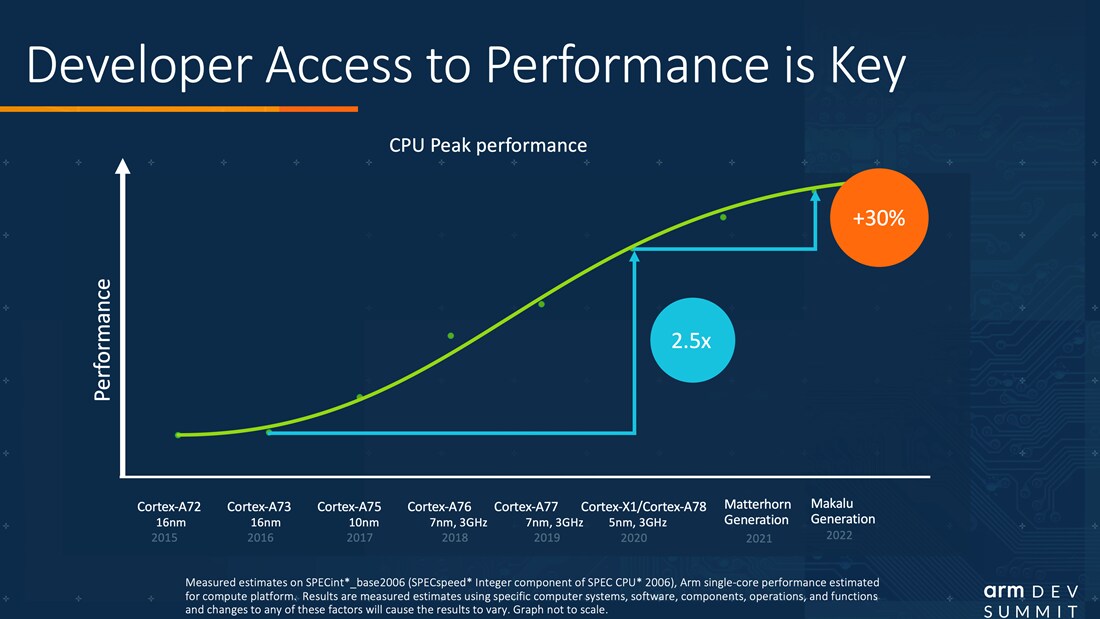Seems ARM just dropped a new roadmap I would assume at the ARM TechCon conference that started on tuesday 6th.

The recent Neoverse roadmap update (from V1 announcement) gave us Perseus = Matterhorn/A79 at 40% IPC improvement from Ares/Enyo/A76.
From this I can infer that since A77 is 1.2x A76 and A78 is 1.07x A77 that Matterhorn's 40% over A76/Ares is about 1.09x A78.
Given the 30%/1.3x over A78 that Makalu represents on this new client roadmap I can infer that Makalu is about 1.19x Matterhorn.
If these are just the 'big' PPA balanced Axx cores then these are still a decent improvement - and obviously at least one of these gens will have an Xn core too paired with it.
Big and not unexpected news too is that Makalu will be 64 bit only, which sounds a lot like Makalu is v9-A finally ditching v7-A/ARM32 hardware level compatibility as I thought some time ago - though I don't doubt that ARM32 software emulation will still be possible.
Link here to the ARM blog entry.
The recent Neoverse roadmap update (from V1 announcement) gave us Perseus = Matterhorn/A79 at 40% IPC improvement from Ares/Enyo/A76.
From this I can infer that since A77 is 1.2x A76 and A78 is 1.07x A77 that Matterhorn's 40% over A76/Ares is about 1.09x A78.
Given the 30%/1.3x over A78 that Makalu represents on this new client roadmap I can infer that Makalu is about 1.19x Matterhorn.
If these are just the 'big' PPA balanced Axx cores then these are still a decent improvement - and obviously at least one of these gens will have an Xn core too paired with it.
Big and not unexpected news too is that Makalu will be 64 bit only, which sounds a lot like Makalu is v9-A finally ditching v7-A/ARM32 hardware level compatibility as I thought some time ago - though I don't doubt that ARM32 software emulation will still be possible.
Link here to the ARM blog entry.


